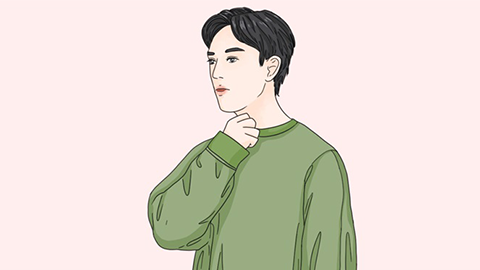What medication should I take for a sore throat with yellow phlegm?
Generally speaking, the throat refers to the pharynx. Yellow phlegm accompanying a sore throat may be caused by improper diet, dry environment, common cold, acute pharyngitis, or acute tonsillitis. It is recommended to seek timely medical advice and use medications such as compound paracetamol tablets, Ganmaoling granules, cytidine iodine buccal tablets, domiphen buccal tablets, or penicillin V potassium tablets under the guidance of a physician. Detailed explanations are as follows:

1. Improper Diet
Consuming excessive spicy, greasy, or irritating foods can stimulate the pharyngeal mucosa, causing local vasodilation and exudation of tissue fluid, which leads to throat pain. Additionally, it may affect the digestive function of the spleen and stomach, resulting in abnormal metabolism of body fluids, accumulation of dampness, and production of phlegm, often characterized by yellow phlegm. Usually, medication is not necessary; maintaining a bland diet, reducing intake of chili peppers and fried foods, eating more fresh vegetables and fruits, and ensuring adequate daily water intake to promote metabolism are recommended.
2. Dry Environment
In a dry environment, the mucous membranes of the throat lose moisture quickly, becoming dry and fragile, which can trigger an inflammatory response and cause throat pain. Additionally, a dry environment can thicken respiratory secretions, making them difficult to expel. Prolonged accumulation in the respiratory tract can lead to bacterial growth, causing yellow phlegm. Typically, no medication is needed. Using a humidifier to increase indoor air humidity and drinking plenty of water to keep the throat moist are recommended in daily life.
3. Common Cold
A common cold is usually caused by a viral infection, such as rhinovirus or coronavirus. After the virus invades the upper respiratory tract, it triggers an inflammatory response that may cause throat pain. As the illness progresses, the body's immune system fighting the virus might be accompanied by bacterial infection, leading to increased respiratory secretions that turn yellow, forming yellow phlegm. Symptoms may also include fever and headache. Under a physician's guidance, medications such as compound paracetamol tablets, Ganmaoling granules, and vitamin C complex tablets may be used for treatment.
4. Acute Pharyngitis
Acute pharyngitis is mainly caused by viral infection, although a minority of cases are due to bacterial infection. Viruses or bacteria invade the pharyngeal mucosa and surrounding lymphatic tissues, triggering inflammation and resulting in throat pain. The inflammation stimulates the respiratory tract, increasing secretions. If the infection is bacterial, inflammatory cell infiltration causes the phlegm to turn yellow. Other symptoms may include a burning sensation in the throat and discomfort during swallowing. Patients may use medications such as cytidine iodine buccal tablets, domiphen buccal tablets, or Yinhuang buccal tablets under medical advice.
5. Acute Tonsillitis
Acute tonsillitis is mostly caused by infection with group A beta-hemolytic streptococcus, although it can also be caused by Staphylococcus aureus, Streptococcus pneumoniae, and other bacteria. Bacteria multiply extensively within the tonsils, triggering inflammation that causes redness and swelling of the tonsils and stimulates surrounding nerves, leading to throat pain. The inflammation stimulates the respiratory tract, increasing secretions and resulting in yellow phlegm. Symptoms often include chills, loss of appetite, and others. Under a physician's recommendation, medications such as penicillin V potassium tablets, amoxicillin capsules, or cefaclor dispersible tablets may be used for treatment.
In daily life, maintaining good oral hygiene and rinsing the mouth after meals is important. Strengthening physical exercise to enhance immunity, and avoiding prolonged stays in crowded and poorly ventilated places can help prevent these symptoms.







